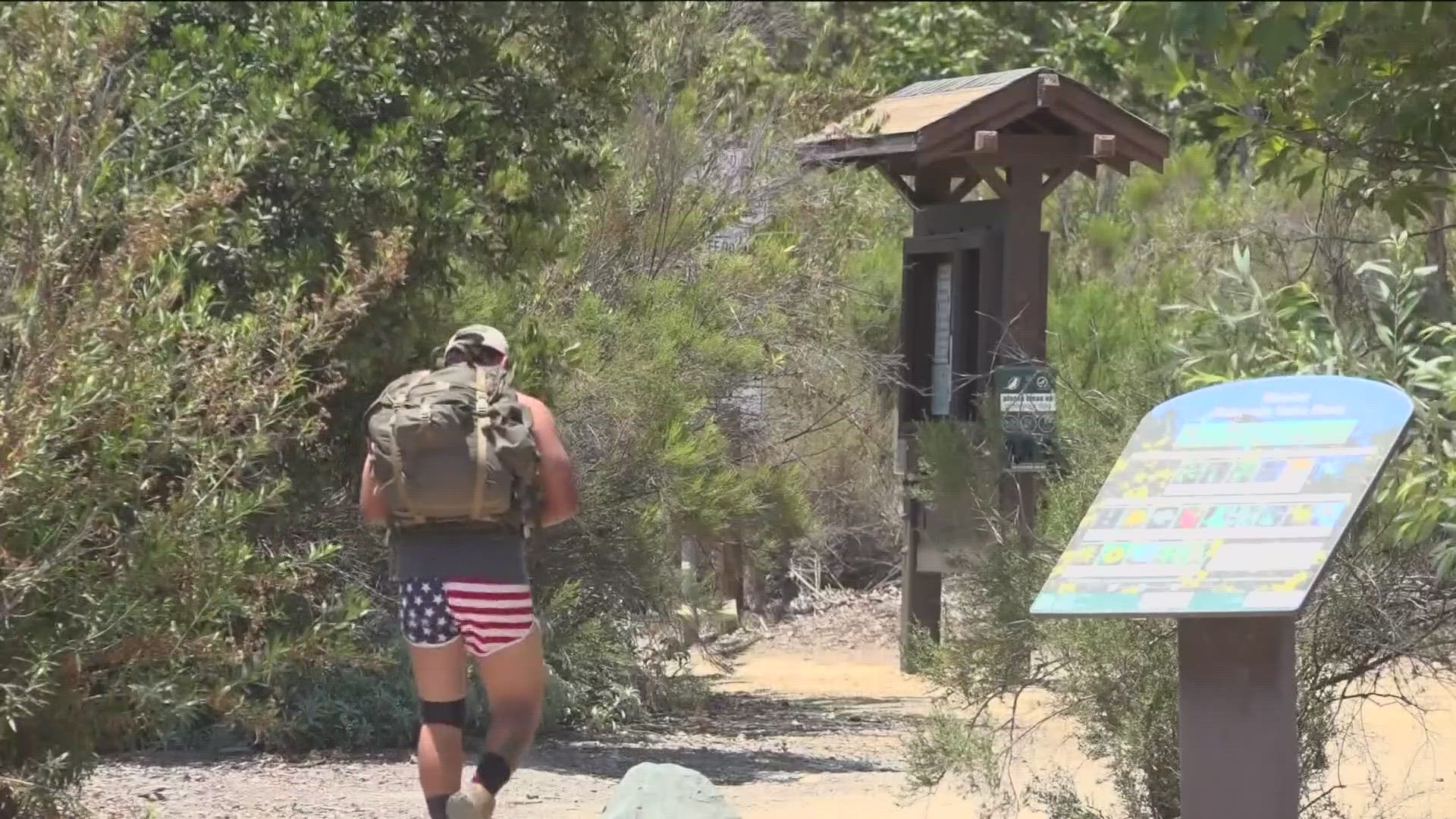LAKESIDE, Calif. — County authorities have identified the man who died Sunday while on the El Capitan hiking trail as Sergio de Jesus Santiago Sufy. Friends of the 27-year-old man called for help around 6:30 p.m., and when paramedics arrived, he was pronounced dead before an emergency helicopter could arrive. An official cause of death has not been determined, but friends say Sufy had been showing signs of heat exhaustion.
“The first thought is sadness for the hiker and the family because a loss at that age is particularly difficult,” said David Lipsitz, administrator of the San Diego Hiking Society Facebook page.
“It happens a lot. I used to live in Arizona and Camelback would have a few fatalities a year over the same thing,” said Mike Baker, a runner who has made mistakes at El Capitan in the past. “When I did this the first time, I did not bring enough water and felt it, and so being prepared matters.”
On Tuesday, Baker prepared for his run to the top, making sure not to make the same mistake again.
“I’m going to be out for three hours, two-and-a-half hours, I have way more than enough water than I need, got some sunscreen, those are the important things,” said Baker.
Debi Abruzzo from Lakeside has been hiking the El Capitan trail for two years, and she shared some helpful tips.
“We’ve gone the whole way and you really have to have 6-8 waters, so when you do that, sometimes it’s nice to have a wet rag, sometimes we freeze it and put it around our necks and that helps also,” said Abruzzo.
Before Mike Duhig hopped on his mountain bike for a ride on the trail, he applied plenty of sunscreen and drank water too.
“Not that I’m always the safest person, I tend to run a little dehydrated, but I always carry water and usually try to ride with someone else,” said Duhig.
“Carrying extra water doesn’t cost very much and it may end up saving your life,” said Lipsitz, who shared what he calls the ‘ten essentials' for hiking preparedness.
He listed, “Navigation, some form of light, protection from the sun, you want to have something to take care of first aid, having a knife or a multi-tool, being able to create or start a fire, matches, lighter, something like that, shelter is a good idea, then extra food, extra water, extra clothes."
Experts say it’s essential to know your limits, so for the more challenging trails and summits, it’s important to train first and work up your endurance and fitness before tackling the tougher trails.

